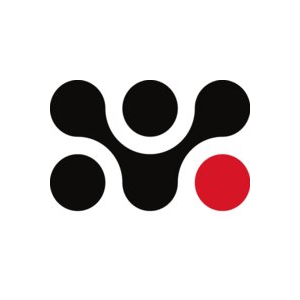Updated March 13, 2023
How to Say Happy Birthday in Japanese
Knowing how to say happy birthday in Japanese is super useful.
Whether you’re learning Japanese or living in Japan, a happy birthday is one of those universal things that everyone appreciates. So, how do you say “happy birthday” in Japanese?
In this article: 📝
While you may know the basic phrase, there are actually many ways to say “happy birthday” depending on context. Let's go through how to say “happy birthday” in Japanese, together with the right time to say it and the culture that surrounds it. Let's take your Japanese skills to the next level and make the most of your next birthday celebration.
How To Say Happy Birthday In Japanese

When you celebrate someone else’s birthday, there are three forms of the exact phrase you can use. These are:
- "Tanjoubi omedetou"
- "Otanjoubi omedetou"
- "Otanjoubi omedetou gozaimasu"
The simplest and most basic way to say happy birthday in Japanese is to say “tanjoubi omedetou.” This phrase is commonly translated as "happy birthday in English", but its literal translation is “congratulations on your birthday.”
However, this form of happy birthday is quite casual, something you say to a close friend or a workmate. If you want to keep everything casual but want to make the greeting a little more polite, you can add a simple syllable at the start, making it “otanjoubi omedetou.”
The o- prefix makes it a little more polite, which works for everyday use, even for strangers. But if you’re looking to greet your superiors at work or people older than you, you'll want to make the phrase more formal. The more polite way to say happy birthday in Japanese is “otanjoubi omedetou gozaimasu.”
If you work in Japan, you likely know about this already. However, for beginners, adding “gozaimasu” this special form with "gozaimasu" is a way to make the phrase extra polite, much like “ohayou gozaimasu” or good morning. If you have to pick from the three versions, the safest phrase should be “otanjoubi omedetou gozaimasu.”
How To Write Happy Birthday In Japanese
Now that you know how to say happy birthday in Japanese, greeting the following way is to write happy birthday in Japanese. Much like the three phrases we listed, there are also three ways to write happy birthday, which include:
- 誕生日おめでとう (Tanjoubi omedetou)
- お誕生日おめでとう (Otanjoubi omedetou)
- お誕生日おめでとうございます。(Otanjoubi omedetou gozaimasu)
Writing this down should be easy for those living in Japan, as it contains several common kanji you use. For those who are still having a hard time writing kanji, you can also use the hiragana version, which is おたんじょうびおめでとうございます.
Let’s break down the kanji we use for 誕生日 (tanjoubi) to understand better how to write this.
- 誕 (dan) - birth, using the radicals 言 (speech), 廴 (stretch) and 止 (stop)
- 生 (sei) - life
- 日 (hi) - sun/day
For Japanese learners, the only tricky kanji in this phrase should be 誕 (dan), so it’s good to practice this properly if you’re writing it down. If you get the kanji right, the birthday celebrant should be more than happy to receive a card with your handwriting on it.
Other Ways To Say Happy Birthday In Japanese And What Phrases You Can Add

Now that you know the standard ways to say happy birthday in Japanese, are there other ways to tell the greeting? The answer is yes! You have several other options available.
One way to say happy birthday to younger Japanese speakers is by saying its exact Eigo phrase. This translates to ハッピーバースデー! (happii baasudee!). It’s a loanword, which can sound super cool, especially if you’re in a younger group.
Another way to say happy birthday in Japanese is to mention the person’s age if you know it. The phrase should go n-歳の誕生日おめでとう (n-sai no otanjoubi omedetou), adding the number in front.
If you’re the one receiving the birthday greetings, the polite reply would be 誕生日のお祝いありがとうございます (tanjoubin no oiwai arigatou gozaimasu) or thank you for the birthday celebration.
Apart from telling people happy birthday, it’s best to personalize your message for the celebrant. Most messages should be giving the other person your well wishes. These can include:
- 素晴らしい一年をお過ごしください (Subarashī ichinen o o sugoshi kudasai, I hope you have a wonderful year!)
- すべての願いが叶うように (Subete no negai ga kanau yō ni, May all your wishes come true)
- 健康を維持してください (Kenkō o iji shite kudasai, Please stay healthy)
You can say more phrases, especially if you know the person you’re greeting. Remember that the best greeting is still something that fits the celebrant’s personality, more than a standard phrase.
How Do The Japanese Celebrate Their Birthdays?

Most Japanese rarely hold big celebrations for their birthday unless it’s a significant number. You will likely greet them with a happy birthday in Japanese while singing the Happy Birthday Song in English. If you’re wondering, the song has no Japanese equivalent, but most Japanese know the song by heart.
Most birthday parties are small, usually with family and friends at home. A simple white sponge cake plus some of their favorite dishes is enough, together with several gifts. The celebration should be close to how people do birthdays in the West.
For the average adult, friends and family organize birthday celebrations for the celebrant; they then pitch in and share the bill for the entire event. Many do this to have the birthday celebrant enjoy their special day without worrying about the cost of the event. People treat this as their “gift” to the celebrant in most situations.
For couples, many set birthdays as an exclusive, romantic event with their partners, celebrated with a date. Most wives or girlfriends expect a fancy gift for their birthday, usually the traditional flowers, accessories, and even trips. For husbands, they tend to get more simple, practical gifts.
Japanese women tend to reserve their birthdays for their partners, so it’s important to remember their special day. Many will feel disappointed in silence if their partners forget, which can even cause a strain on the relationship. They don’t always expect something fancy, but their partner must remember.
Japanese Birthday Festivals and Milestones

In Japan, children tend to have big birthday celebrations in their third and seventh years for girls and the fifth year for boys. This coincides with the Shichi-Go-San (7-5-3) Festival for kids. During this festival, kids wear kimonos and visit shrines.
During these visits, families pray for the child’s good health and happiness. Children also receive Chitose-Ame, also known as the “thousand-year candy,” a type of hard candy that aims to wish 1000 years of good health for the children.
As for adults, one of the most crucial birthday celebrations is the 20th birthday, also known as 成人の日 (Seijin no Hi) or Coming of Age Day. This holiday happens every 2nd Monday of January and celebrates everyone with a birthday from April 2 of the year before to April 1 of the current year.
Here, everyone with a birthday for that period goes to the local city offices to undergo the ceremonies. This is a big deal, with women wearing furisode, a type of kimono, while men wear a formal Western suit or a hakama.
The Bottom Line
As you’ve seen, there are many ways to say “Happy Birthday” in Japanese. These phrases all depend on your closeness with the celebrant and their status in your life. Regardless, a simple, heartfelt greeting is mostly good enough. Why not get together with friends who live in Japan and plan out the event together?
Japanese birthdays are simple, fun, but still enjoyable. Keep these Japanese Happy Birthday phrases in mind and impress your Japanese friends with your better Nihongo.
Get Job Alerts
Sign up for our newsletter to get hand-picked tech jobs in Japan – straight to your inbox.







